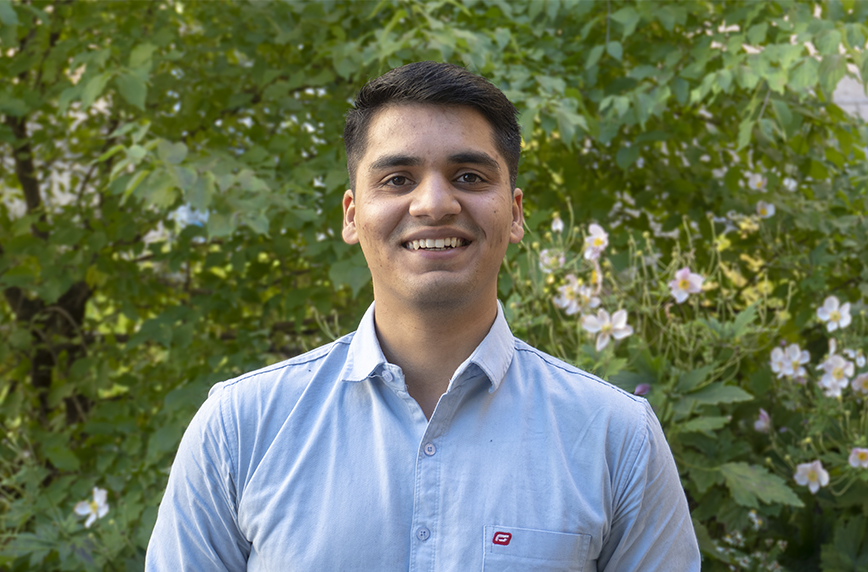Devrat
Devrat spent his schooling days until finishing high school in India, then he moved to Denmark to do his bachelor's in Electronics and Computer engineering at Aalborg University, and now here in Stockholm, continuing the journey.

Why did you choose this master's programme at KTH?
I have had the chance to work on some robotics-related projects during my bachelor's, and this served the purpose of whetting my appetite to seek more about the field. Accordingly, after finding out about the Systems, Control and Robotics (SCR) programme, I came across the Robotics, Perception and Learning (RPL) department, and I remember being intrigued by the work. Some of the ongoing projects (related to drones) were so mesmerising to me that with the hopes of joining RPL, I started my master's journey in the closely related SCR programme.
What are the best aspects of your programme?
The best aspect of this programme is that the application of control and robotics stems far and wide. You can work with healthcare robots, with drones, with data science techniques, which by themselves open the doors to even more opportunities. My point being, in this programme you can orient yourself towards almost any field in some form. This is further augmented by the wide variety of courses available each semester. The possibilities are endless, you can choose to specialise and pick courses that help your speciality, or you can cast a wide net by trying different aspects of the field and establishing a broader knowledge base. As such, throughout my time here at KTH, I have never felt a lack of opportunities.
Have you chosen a specialisation track within the programme?
Within my master's programme, I have been following the "Robotics and autonomous systems track". It focuses on aspects like computer vision, machine learning, speech recognition etc. As one might guess, even after choosing the track, there are many possibilities for further specialisation. Accordingly, my focus has been on developing a skill set related to autonomous navigation and its related aspects. My enthusiasm for the topic stems from the understanding that any machine, whether a car or "Spot", the robot dog from Boston Dynamics, all need a navigation system that is crucial to their working.
What are some of your favourite courses so far?
Out of all the courses I have taken at KTH so far, my favourites are:
1) Project course in robotics and autonomous systems, 2) Deep learning in data science. In the project course, we designed and implemented our solutions for navigation, planning, and object detection on a drone. The fun part came with testing our implemented techniques such that the drone was able to explore a room without any assistance. The deep learning course served as a great introduction to the concepts of neural networks and was further made enjoyable with a small project in the end.
What would you like to say to students thinking of choosing KTH for master's studies?
If you have come so far, I find it fair to believe that you are somewhat interested in robotics and studying it at KTH. Then I can give you a gentle nudge. I guarantee that you will find many opportunities to learn about the various aspects of the field. I have liked here that I get to choose and work on problems and methods that I find intriguing. It has undoubtedly led me to find people that hold similar interests want to solve the same problems and have compelling discussions about them. I am sure you will have the same or even better experiences here. Moreover, if you still feel doubtful or have questions, feel free to give me a holler.
